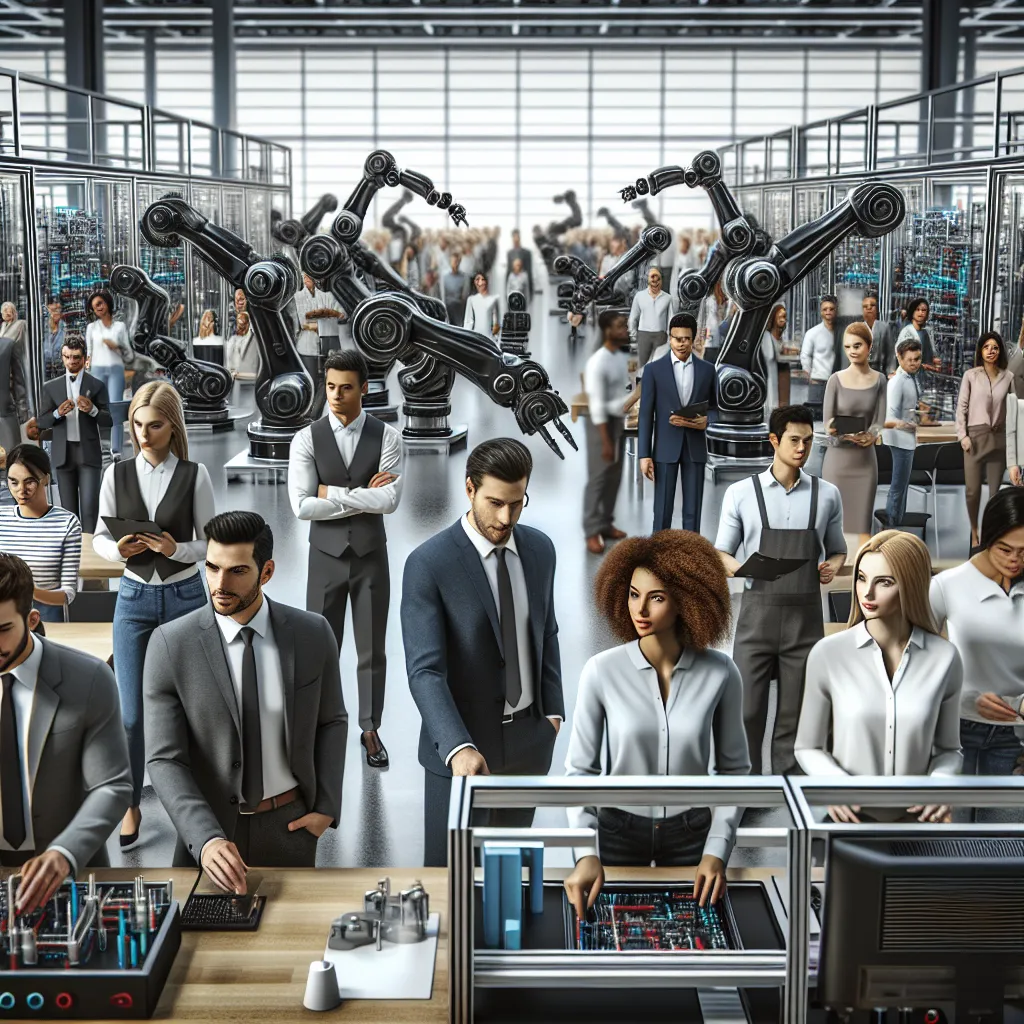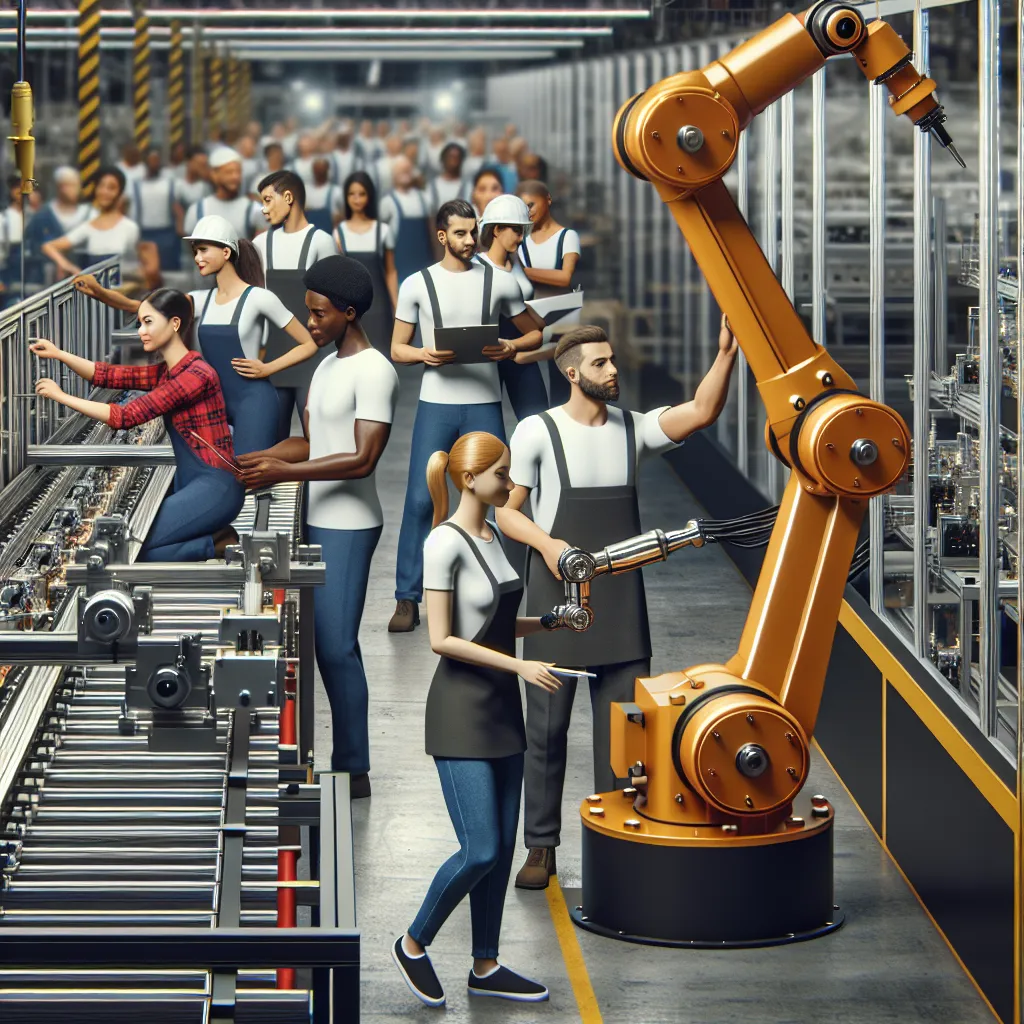Impact of Automation on Employment Trends
In recent years, the impact of automation on employment trends has become a widely discussed topic. As technology continues to advance, many traditional jobs are being replaced by automated systems and artificial intelligence. While this shift has led to concerns about job displacement, it has also created new opportunities for workers. One of the key impacts of automation on employment trends is the transformation of job roles. Routine and repetitive tasks are increasingly being automated, freeing up human workers to focus on more complex and creative aspects of their jobs. This has led to the emergence of new roles that require skills such as data analysis, programming, and problem-solving.
Furthermore, automation has the potential to improve productivity and efficiency in various industries. By streamlining processes and eliminating manual labor, businesses can operate more effectively and allocate resources towards innovation and growth. However, it’s important to note that the adoption of automation is not uniform across all sectors. While some industries are experiencing significant changes in employment patterns due to automation, others are seeing minimal impact.
Overall, the impact of automation on employment trends is complex and multifaceted. While it has the potential to create new opportunities and improve productivity, it also poses challenges in terms of job displacement and the need for upskilling and reskilling the workforce. As we move towards an increasingly automated future, it is essential for policymakers, businesses, and workers to collaborate in order to navigate these changes effectively and ensure a smooth transition into the future of work.
Preparing for the Workforce of Tomorrow
Preparing for the Workforce of Tomorrow is becoming increasingly crucial as the future of work continues to evolve with the advancement of automation. As industries adopt more automated technologies, it is imperative for the workforce to adapt and acquire new skills to stay relevant in the job market.
The key to preparing for the workforce of tomorrow lies in embracing continuous learning and upskilling. Individuals need to be proactive in seeking out opportunities to learn new technologies, digital skills, and other competencies that are in high demand in the age of automation. This can be achieved through online courses, vocational training programs, or even employer-sponsored retraining initiatives.
Furthermore, educational institutions and training organizations play a vital role in shaping the workforce of the future. They need to revamp their curricula to include more technology-focused courses and hands-on training to equip students with the necessary skills for the jobs of tomorrow. Collaboration between industry and academia can also ensure that educational programs are aligned with the current and future needs of the workforce.
In addition to technical skills, the workforce of tomorrow will also require strong interpersonal skills, adaptability, and creativity. These human-centric qualities are difficult to automate and will be highly valued in a future where human-machine collaboration becomes more prevalent.
Embracing automation in the future of work does not necessarily mean job displacement, but rather a shift in the nature of work. By proactively preparing for the workforce of tomorrow, individuals and organizations can seize the opportunities that automation brings and ensure a smooth transition into a future where human potential is augmented by technological advancements.
Balancing Human Skills with Automation in the Workplace
As we enter a new era of work dominated by automation and advanced technologies, finding the right balance between human skills and automation in the workplace becomes crucial. While automation can streamline processes, increase efficiency, and reduce human error, it’s essential to recognize the irreplaceable value of human skills in driving innovation, creativity, and empathy in the workplace.
Employers are increasingly realizing that successful integration of automation requires a strategic approach that emphasizes the complementary nature of human and machine capabilities. While automation excels at repetitive tasks and data analysis, humans bring a unique set of skills such as critical thinking, emotional intelligence, and complex problem-solving abilities to the table.
Furthermore, the future workplace will require employees to adapt and upskill to work alongside automation effectively. This means cultivating a workforce that is not only tech-savvy but also possesses the adaptability and willingness to embrace change.
By striking the right balance between human skills and automation, organizations can foster a work environment that harnesses the full potential of both, driving innovation, productivity, and overall job satisfaction. Embracing automation while nurturing human skills is not just a necessity but a strategic imperative in shaping the future of work.




